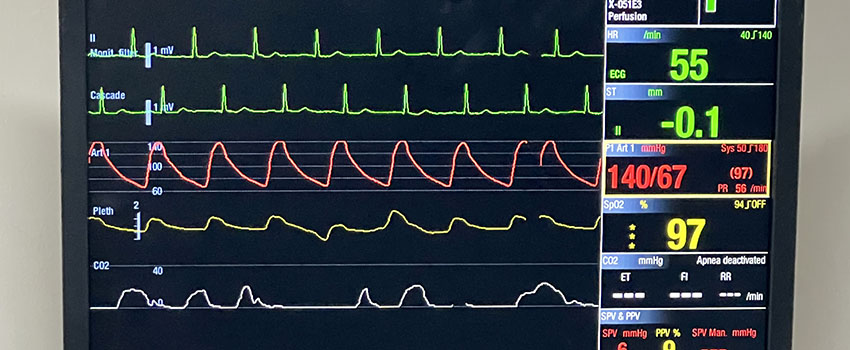
Call Us: 011 475 7654



An electrocardiogram (ECG) is a procedure that uses electrical signals to check the rhythm of your heartbeat. These signals are recorded by a specialised machine that prints the results as the electrical signals input the data.
An electrocardiogram procedure is a standard cardiology test performed during a comprehensive consultation. It is often used with other cardiology tests to get a more rounded picture of your heart health.
Reasons you may need an electrocardiogram include symptoms such as:
Following these symptoms, an electrocardiogram can help detect the following:
Electrocardiograms also form part of monitoring your heart health should you have a pre-existing cardiovascular disease.
You will be asked to change into a hospital gown and lie on your back on the patient bed. The specialist will then attach electrodes to your arms, chest and legs. If you have hair in these areas, it will first be shaved and cleaned before applying the electrodes. The electrodes monitor the electrical activity in your heart for a few minutes and relay this information to the electrocardiogram machine, collecting data that shows how your heart is beating.
The standard electrocardiogram is a resting electrocardiogram, but it can also be done while you exercise on a bike or treadmill. This is usually only done if your symptoms are caused by physical activity.
Once complete, the electrodes will be removed, and you are free to change. The cardiologist will then discuss your results and next steps.
The electrocardiogram presents your results in a graph format, showcasing your heartbeat. From here, we can make a diagnosis or request further testing should there still be some concerns about your heart health. If your results need further analysis, we will request a second appointment and provide you with the diagnosis and comprehensive treatment plan.
Book an appointment